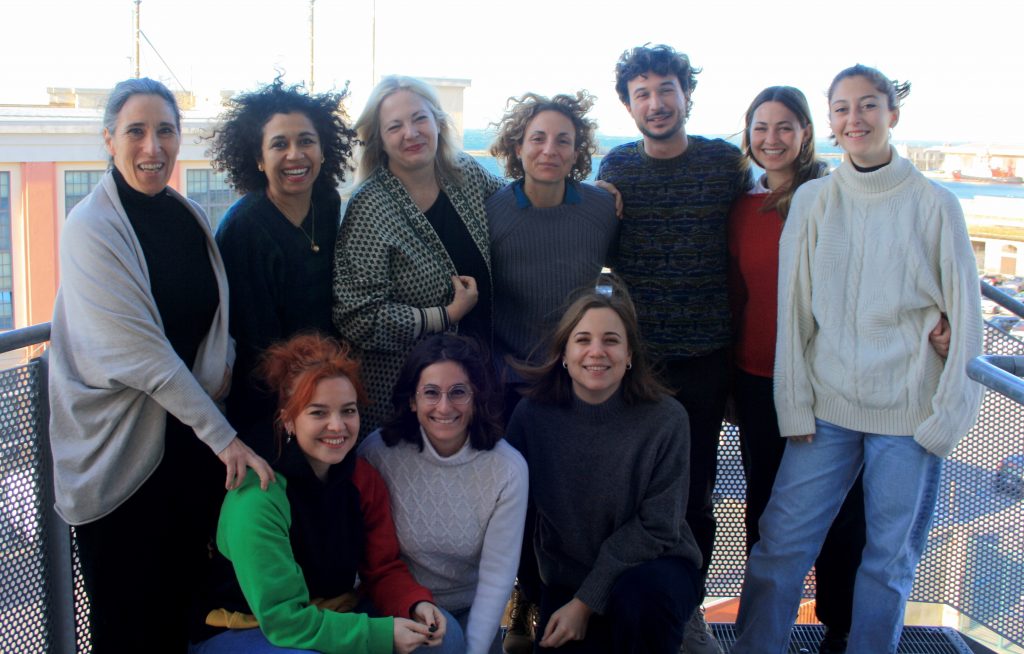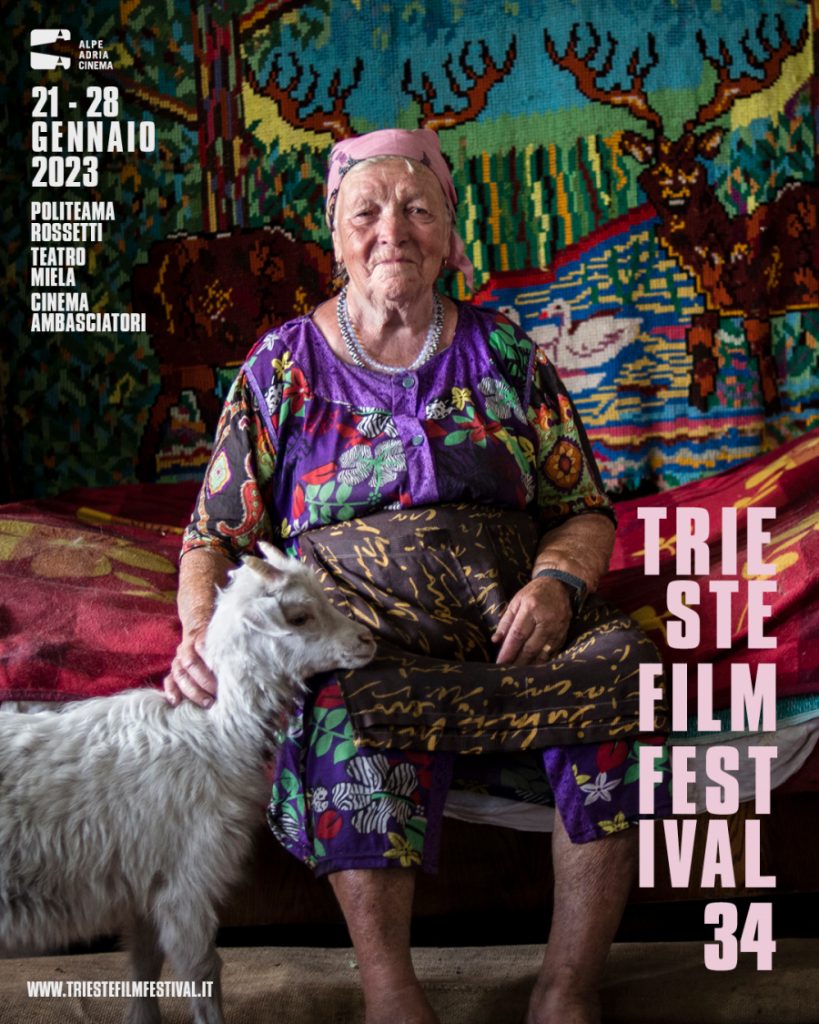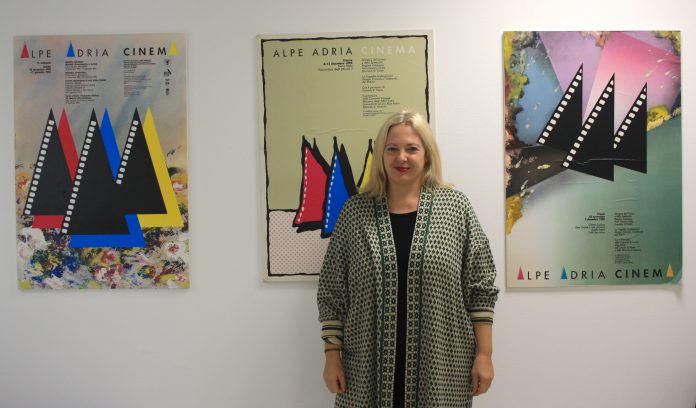Interview and photography: MK
We interviewed Nicoletta Romeo, the director of the Trieste Film Festival, on the meaning of the festival and its socio-cultural impact.
How did it all begin?
Nicoletta: The festival established itself in the months prior to the fall of the Berlin Wall. It was a year of great changes for the world, and it was the year we were born. The idea was to give a voice to those who did not have a voice and focus on those filmmakers that were less known in Italy and that still today have lots of difficulties being distributed. Things are a little different now with a growing interest for the cinema from Romania, Hungary, Poland and other countries from our macro-region of interest: at the beginning we wanted to bring them from the margins to the center.
A noble cause.
Everything changed at the beginning of the 2000, when these countries entered the European Union, which meant finally being able to go beyond geopolitical, but also cultural and psychological boundaries. As well as economical, as many directors from these countries were finally able to apply for the European funding. About thirteen years ago, with the Regional Audiovisual Fund we started co-organizing When East Meets West, which is a film co-production forum where we bring together audiovisual professionals, filmmakers, distributors from Eastern and Western countries in Europe, where they can pitch their films to a professional audience. It’s a platform that is really necessary for all of these countries looking for potential partners.
What’s the primary focus of your festival?
The focus of our festival is and has always been Central and Eastern Europe. Trieste has always been the last avanpost of the Western Europe but at the same time the center of Europe itself. The festival was born here and has always been connected to our territory and our town. Slovenia, Croatia, Austria – there’s a huge territory around Trieste. We have established the dialogue between the festival and the international communities that make this town great – the Greek, Serbian, Croatian, Jewish, and Slovenian, of course.
Your audience?
Yes, and the audience is part of our success. I think we managed to educate it in the past 30 years. They have learned about the cinema, and we managed to create a constantly growing dialogue with the new generations.
Wonderful.
We also have a festival for the little ones, it’s a festival within the festival. The animation cinema, so they can meet for the first time great authors and they can see films on print. It’s more than a simple screening: it’s film literacy, film education and we believe we have to start with kids, the future audience of our festival.

What about 2023 TFF?
We are living in a very complex world and we can’t give simple answers to complex questions. We live close to a country torn by war so we decided to dedicate the focus called ‘Wild Roses’ to Ukrainian women filmmakers. It will be interesting to understand Ukraine also from a cinematic point of view. I think the female point of view is always very interesting: female filmmakers always tell stories in a different way. We hope it will be interesting to understand this country a little better and to really understand who they are and what their culture is. On the other hand, of course we are against censorship and we are not the kind of festival that bans any country from it, and I am very happy to welcome a documentary called ‘A New Greatness Case’ by a Russian dissident, Anna Shishova, a film on the lack of freedom, the perversity and manipulation of the Russian government, told through a case of a group of teenagers who are in prison with fabricated charges against them. It’s about Russia today, about the government, about the pressure of the people living in that country. I think it’s very important to show this love letter to a country which is not the country she used to live in. I believe this documentary will add to the debate, and underline that we can’t offer easy explanations to difficult questions.
Your festival feels different from other festivals as it entertains as well as educates.
Most of the documentaries we selected are narrative and some of them are observational. Our audience has learned not to be afraid. Trieste has become Italian very recently, in 1954, so we are still dealing with our past issues and identity issues and the festival is somehow reminiscent of that. We like to provoke questions and debate on all of the elements of our culture. We can allow ourselves to be daring and provocative without being afraid to be judged. We are totally free and independent, which is not to be taken for granted these days.

What are your best pics for TFF 2023?
We have almost 100 entries this year, so it’s really hard to choose. The festival will be based in the Miela and Rossetti theaters, as well as the Ambasciatori cinema. Rossetti will be the venue dedicated to the special events and feature film competition, Miela will be dedicated to the special events, children’s programs and retrospectives, and Ambasciatori will be entirely dedicated to documentaries.
What must one absolutely see during the festival?
The focus of the Ukrainian women filmmakers, where the audience will discover their world, far more than what the papers are telling us. I would also recommend documentaries, as they are so precise and multilayered and you will get a better idea of what the Eastern Europe area is like.
Do you yourself recognize yourself in the city of Trieste?
That’s a difficult question. I studied here. I was born in the States but my parents are Italian from different parts of the country. If we think of Trieste as a multicultural town, then I am from here. I can recognize myself in the multicultural element. I don’t recognize myself in Trieste that looks back to the past. I am a citizen of the world and Trieste is a city of passages, a harbor. We live in very difficult times where people think boundaries are important but through cinema we can break those boundaries and see things from a different prospective.
Trieste Film Festival will take over the city 21-28 January, 2023. The full program can be found here: www.triestefilmfestival.it






























